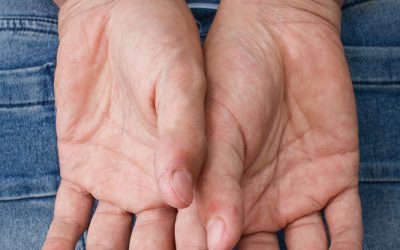Coming to terms with powerlessness can be one of the most challenging aspects of Step One. It’s not easy to admit that something as seemingly controllable as substance use or addictive behavior has taken control of your life. However, understanding powerlessness is the key to breaking free from the cycle of addiction. In this article, we’ll explain the definition of powerlessness and why it’s so important in AA’s twelve steps process. Keep reading if you’re looking to get the most out of your Alcoholics Anonymous experience and make breakthroughs in your battle with substance abuse.
Alcoholism contributes to many physical and mental health issues and even death.
- Fully accepting step one is not always a straight path, but there is good news!
- At Hazelden Betty Ford, support begins with understanding your story and continues with care that fits your life.
- This requires strength and making positive choices, which are a far cry from weakness.
This acknowledgment is the key to breaking free from substance use disorders and beginning a recovery program that offers hope and healing. Powerlessness is a central theme in 12-step recovery programs, notably in Alcoholics Anonymous (AA). The AA first step, admitting powerlessness and acknowledging the unmanageability your addiction brings, is a crucial leap toward lasting recovery. It’s a moment of profound self-realization and humility, opening the door to hope, healing and transformation. Remember, the 1st step AA is not the end but the beginning of powerless over alcohol examples a brighter future.
How to Know if My Life is Unmanageable
When Jason Wahler first joined the cast of Laguna Beach as a senior in high school, his mental health and addiction struggles were already underway. His addiction also “drove me to suicide,” he revealed to Entertainment Tonight in 2016. The first step of anything is a beginning, so the first step of the Alcoholics Anonymous 12 steps is the beginning of your recovery process. It’s actually really exciting, because it’s the first day of a new life. By taking these steps, individuals can not only combat powerlessness but also foster an environment for personal growth and empowerment. Economic powerlessness reflects a lack of control over financial resources and opportunities, primarily due to systemic inequalities.
Step 1 of AA: “Powerlessness”, the First of the 12-step Journey
Marginalized communities often experience systemic inequities due to discrimination based on factors such as race, gender, and socioeconomic status. These disparities manifest in various ways, including limited access to healthcare, education, and employment opportunities. Whatever your goals, it’s the struggle to get there that’s most rewarding. It’s almost as if life itself is inviting us to embrace difficulty—not as punishment but as a design feature. At any rate, an admission of powerless does not mean you are weak or pathetic. Alcoholics Anonymous, more casually known as A.A., is built upon a simple set of 12 steps in order to achieve daily what is Oxford House sobriety.
- If you’re struggling with alcohol use—whether or not you’re in AA—it is up to you to choose how you describe your situation.
- As trauma rewires the brain’s response to stress, individuals may exhibit symptoms like freezing, panicking, or outbursts of anger when faced with reminders of their past experiences 3.
- It highlights that this step is not just about admitting a problem but about recognizing the need for a support system and a structured recovery program.
- Embracing powerlessness is a transformative process that enables individuals to find freedom and inner peace while building a solid foundation for lasting sobriety.
About Samba Recovery
- Our comprehensive approach to recovery, combined with long-term residential treatment and dual diagnosis capabilities, prepares clients to successfully navigate the path to sustained sobriety.
- Empowerment in the recovery journey involves understanding that addiction is a disease, not a character flaw.
- Each person’s spiritual journey is unique, and finding what brings meaning and strength is a personal exploration.
- I cannot do anything for myself or my family without the drug controlling my every choice.
- If you’re passionate about putting a halt to your alcohol consumption, AA membership is available to you.
Ridgeline Recovery provides compassionate, evidence-based treatment for addiction and mental health—helping individuals in Columbus, OH take back control of their lives. Recognizing powerlessness isn’t about weakness—it’s about accepting reality so you can take action. When you acknowledge that addiction has control, you can begin to seek help through Addiction Treatment and therapy options. If you rely on alcohol, prescription drugs, or illicit substances just to function daily, this is a clear example of powerlessness over addiction. The original references to God were quickly challenged in the early days of AA, and Bill W. Addressed those challenges by explaining that every member was welcome to interpret God to mean whatever higher power they chose to believe in while working the steps.
Worksheet to Assess Your State of Powerlessness and Unmanageability
Engaging in support groups fosters community and shared experiences, where individuals can find strength in collective recovery journeys. Setting small, achievable goals helps restore a sense of control and accomplishment. Step One isn’t just a standalone step; it lays the foundation for the entire 12-step recovery process. Without accepting powerlessness and unmanageability, it becomes challenging to make meaningful progress in your journey to recovery. If you or someone you love struggles to manage their drug and alcohol addiction, it is vital to seek drug addiction treatment.

Craving leads to compulsive actions—missing appointments, destroying relationships, and putting everything on the line just to feel the ease and comfort of using again. Not all https://ecosoberhouse.com/ peer-led mutual support organizations believe in this idea of powerlessness. For example, LifeRing Secular Recovery, SMART Recovery, HAMS, and Secular Organizations for Sobriety (SOS) focus on self-empowerment rather than looking outside yourself for help.

“We admitted we were powerless over alcohol (or our addiction) – that our lives had become unmanageable.” Step One is the foundational step in both Alcoholics Anonymous (AA) and Narcotics Anonymous (NA). It is the starting point of the 12-step recovery process and sets the stage for acknowledging the depth of addiction and the need for help. In this blog, we will explore Step One in AA and NA, emphasizing its significance and how it serves as a powerful catalyst for change and recovery. Reach out today to learn more about our personalized treatment plans and partial care programs. Start your journey to a healthier, happier life with Enlightened Recovery.
The community we find in Alcoholics Anonymous (AA) plays a vital role in helping us admit we are powerless over alcohol and begin the journey to recovery. When we attend an AA meeting, we discover a fellowship of people who understand the struggles we face and offer strength through shared experiences. This sense of belonging is critical in rebuilding a person’s life and reclaiming a person’s identity beyond addiction. Understanding the myriad forms of powerlessness is pivotal for addressing its impact on individual and collective well-being.
Step Series
We’ll give you skills to discover your self-worth and show you the tools for a life of hope and promise. For more holistic approaches to managing addiction, consider resources related to how can group therapy help treat my addiction? Or can cognitive behavioral therapy help treat an alcohol addiction?. Understanding these power imbalances is crucial in addressing social inequalities and working towards a more just society. Efforts to dismantle systemic injustices involve recognizing the experiences of those affected and implementing changes that promote equity and inclusion. Power dynamics in relationships play a pivotal role in shaping how individuals interact and communicate with one another.
Tools and Practices for Embracing Powerlessness
The journey toward understanding and managing unmanageability may seem challenging, but countless individuals have walked this path successfully, and so can you. This dilemma represents a significant public health challenge, as it often goes unnoticed or ignored due to social stigma, denial, or lack of awareness. Individuals struggling with alcoholism may not seek help due to feelings of shame, fear of judgment, or a belief that they can manage their drinking on their own. Benefits include increased resilience, improved emotional well-being, enhanced emotional regulation, and better overall mental health and quality of life. To better understand the concept of powerlessness over alcohol, it helps to look at life situations that demonstrate this powerlessness.
In substance abuse recovery, we learn that addiction is not just a physical issue but a relentless mental battle. This obsession convinces us that we can control our drinking or using, despite countless failures and consequences. The phenomenon of craving is central to understanding why addiction is more than just a bad habit—it’s a disease. As explained in the Big Book of Alcoholics Anonymous, this physical allergy makes it impossible for us to use alcohol or drugs in moderation. Once we take the first drink or drug, a chemical reaction triggers an uncontrollable desire for more.